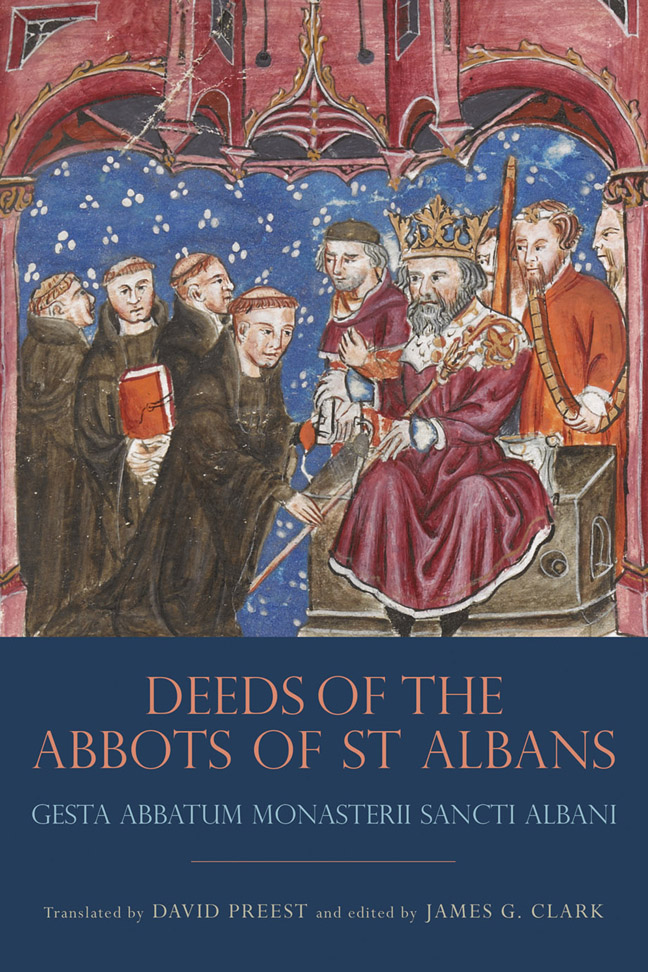Book contents
- Frontmatter
- Contents
- List of Illustrations
- Acknowledgements
- List of Abbreviations
- Introduction
- The Translation and its Sources
- The Deeds of the Abbots of St Albans
- Appendix A Thirteenth-Century Précis of the Deeds of the Abbots of St Albans: British Library, MS Cotton Vitellius a XX
- Bibliography
- Index
24 - Roger De Norton
Published online by Cambridge University Press: 17 February 2024
- Frontmatter
- Contents
- List of Illustrations
- Acknowledgements
- List of Abbreviations
- Introduction
- The Translation and its Sources
- The Deeds of the Abbots of St Albans
- Appendix A Thirteenth-Century Précis of the Deeds of the Abbots of St Albans: British Library, MS Cotton Vitellius a XX
- Bibliography
- Index
Summary
A fine for the custody of the abbey is agreed with the lord king and permission to elect an abbot is obtained
After the death of that abbot of pious memory, Dom. John of Hertford, and his magnificent burial, Astil the prior with the consent of the monks on the day after the abbot's entombment sent three monks to King Henry III to obtain his permission for electing an abbot and to agree about paying a fine for the custody of the abbey. Without delay the three monks happily brought back letters from the king granting permission to elect an abbot. They also won the royal concession to the custody of the abbey for all the time of the vacancy until they should have an abbot inducted into corporal possession of the abbey in return for a fine of 600 marks, ‘with the king keeping the advowsons to churches, the wardenships, the reliefs and the escheats, if any happened to come up during the time of the vacancy etc.’
The appointment of Roger de Norton (noted below) as twenty-fourth abbot of the monastery of St Albans
Astil the prior summoned for the day of election those who should have been summoned, and all who should, would and could met together in the chapter house. They all unanimously agreed that it was advantageous and in their interests to hold the election via delegation, so they chose nine delegates. And these, as is the custom, having received the powers delegated to them, unanimously chose using canon law their fellow monk, Brother Roger de Norton, as abbot.
The next day the elect journeyed in haste to the king, accompanied by the priors of Tynemouth and Wymondham and various others from the monastery, and taking with him a letter from the whole convent concerning his presentation. Having completed his business with the king, he returned home. Immediately after this royal letters were sent to the lord pope for confirmation of the election, together with letters from the convent and lord bishop of Norwich and also the bishop of Ely, and the abbot of St Augustine's Canterbury and of the Holy Cross at Waltham in the same cause.
- Type
- Chapter
- Information
- The Deeds of the Abbots of St Albans<i>Gesta Abbatum Monasterii Sancti Albani</i>, pp. 507 - 542Publisher: Boydell & BrewerPrint publication year: 2019

